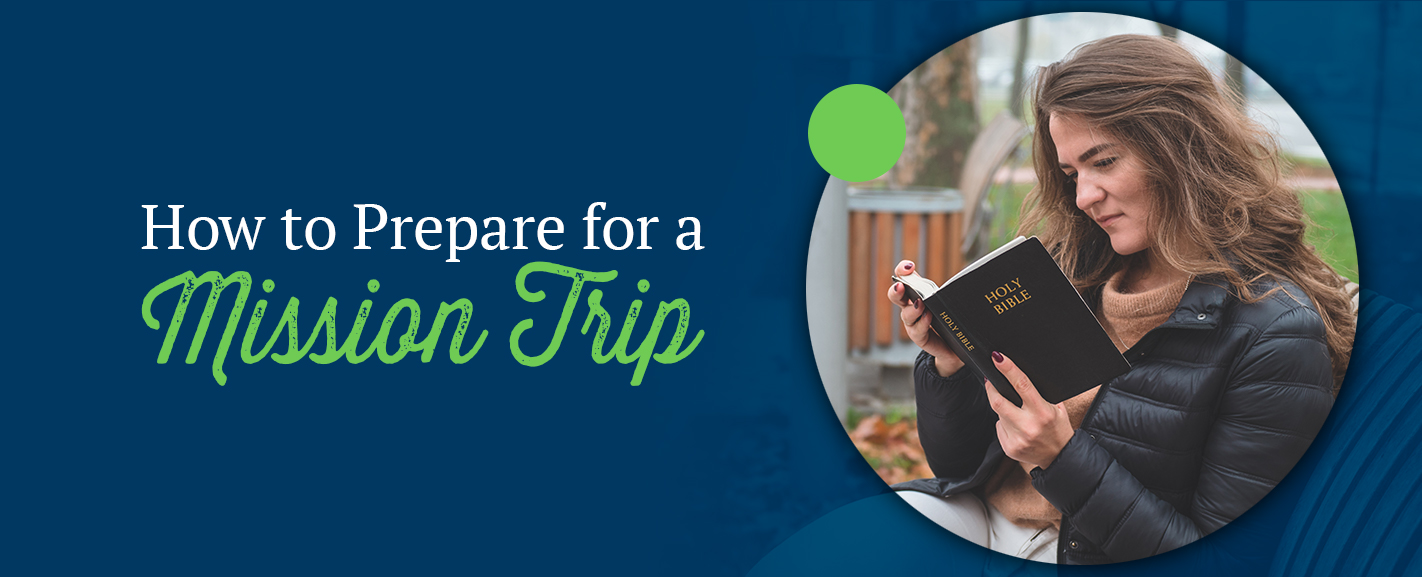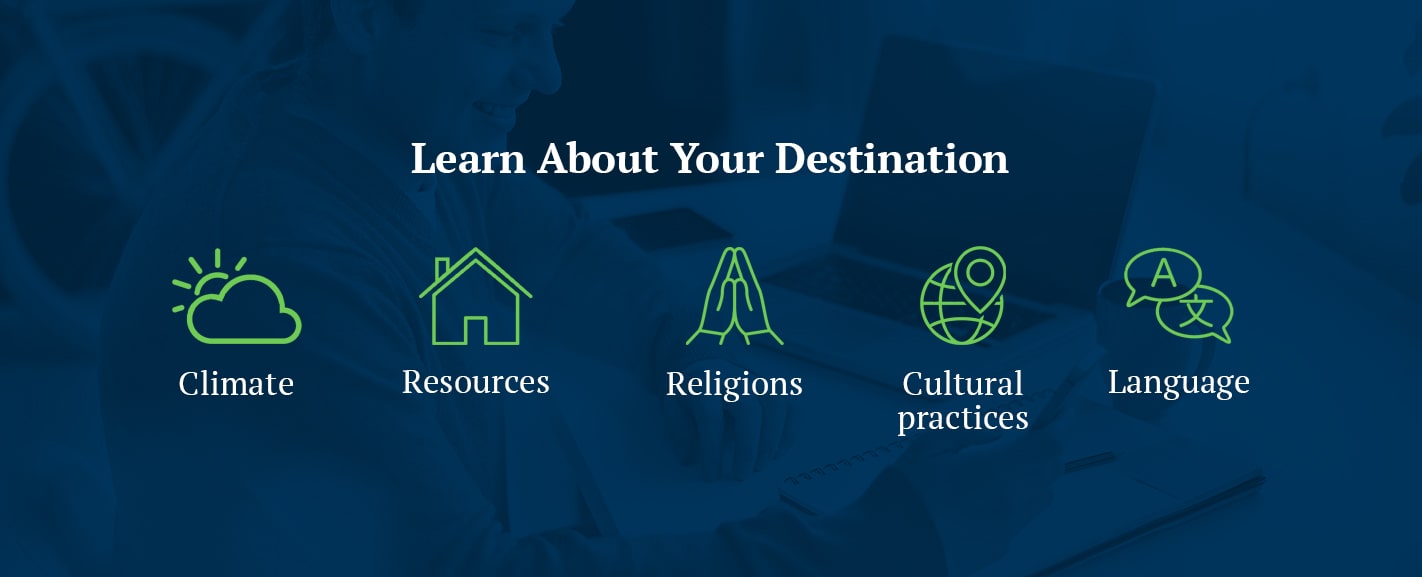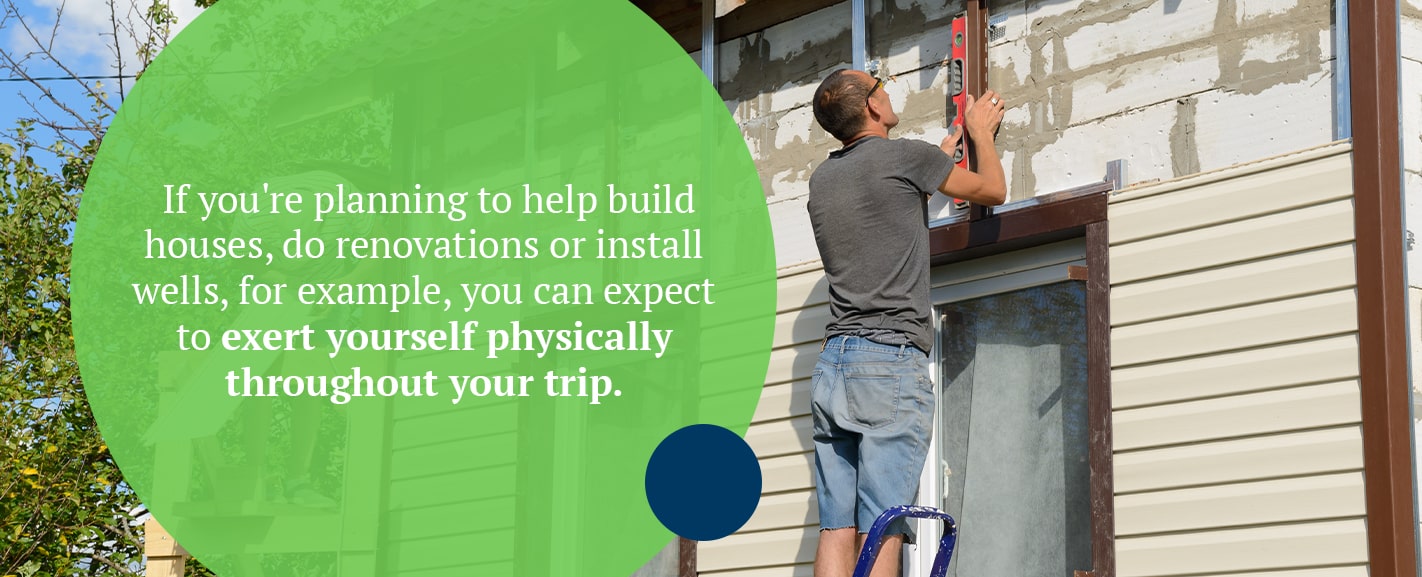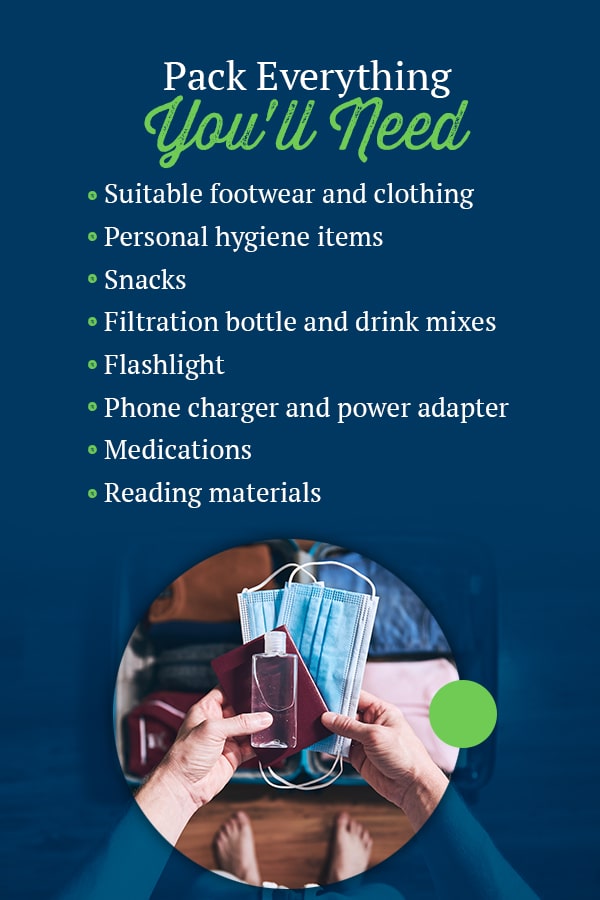
How to Prepare for a Mission Trip
You’ve felt God calling you to minister and share the Gospel with people you’ve never met. You’ve raised the money you need to fund your trip, and you’ve blocked off time in your calendar. You’re ready to go! However, undertaking a short-term or a long-term mission trip involves many other preparations to ensure you’re spiritually and practically ready.
In this post, we’ll look at how to prepare yourself for a mission trip. This includes readying yourself spiritually, reading up on your destination, taking care of logistics, staying healthy and packing all the essentials. When you put the time and effort into thoroughly preparing for your mission trip, you can eliminate many problems and distractions and make the most of your mission.
Prepare Spiritually
First and foremost, you should prepare your heart and mind for a mission trip. Spiritual preparation is key for a spiritual mission. Two of the most important steps to prepare spiritually for a mission trip are to analyze your intentions and to pray.
God can bless people through those with flawed intentions. However, it’s best to serve others with sincere, selfless motives. In Matthew 6, Christ warns his followers not to perform righteous deeds for the purpose of drawing attention to themselves. Some people go on mission trips because they think the experience will make them feel good about themselves or because the pictures they post online will impress their friends. Others may even be most excited about visiting a new location, viewing the trip more as a vacation.
Prayerfully search your heart and see if there are any ulterior motives you should root out before you go on your trip. Ask God to replace self-centered desires with selfless desires to serve others and see God magnified. Our Heavenly Father can provide the short-term mission encouragement you need to go into your trip with the right attitude.
You should also make sure you don’t go into a trip with unrealistic expectations. Especially on a short-term mission trip, you may not see any conversions or dramatic events. Instead, you may be adding to the work others have done before you and will continue to do after you that will be fruitful in the long run.
Entrust the trip to God. Pray for the people you’ll be ministering to and the other missionaries in the weeks and days leading up to the trip, asking God to use your humble service to build his kingdom. The prayer of St. Francis of Assisi is an excellent prayer for anyone who wants to prepare their heart for a peacekeeping mission trip where they can demonstrate God’s love.
Learn About Your Destination
You also need to prepare yourself mentally by learning about the destination where you’ll be going. This is key whether you’re going on your first mission trip or you’re an experienced missionary who is traveling to a new country. Understanding how to prepare for a mission trip to Haiti, for instance, will not necessarily help you if you’re going to Poland this time. Wherever you plan to travel, make sure you understand these features of your destination:
- Climate: Knowing about the local climate in general and what sort of weather you can expect while you’re there will be crucial when you’re packing for your trip. In some areas, you may experience conditions that are more extreme than anything you’ve experienced at home. To avoid getting a severe sunburn on your first day or freezing in an inadequate jacket, you can come prepared with the right clothing and supplies.
- Resources: Find out what sorts of resources are available in the area where you’ll be working. There are amenities we take for granted at home that are considered luxuries in other parts of the world. For instance, you may not have access to modern restroom facilities or safe drinking water from a tap. If you’re traveling with a mission organization or agency, talk to people in the organization to learn more about what you can expect and how best to prepare.
- Religions: It’s also helpful to know what religions are prominent in the area you’re visiting. This can inform how you discuss your own faith with people. For example, if you’re going to be ministering in a predominately Muslim area, you may want to take time to learn more about the Islamic faith so you can understand points of similarity and difference with Christianity and better connect with people you meet.
- Cultural practices: You should also research cultural practices for the country, region or people group you’ll be ministering to. This includes practices like style of dress, proper greetings, mealtime etiquette and more. By doing this research, you can avoid offense and instead form strong relationships with locals. Missionaries who have immersed themselves in various cultures can echo the sentiment of St. Paul who said, “I have become all things to all, to save at least some.”
- Language: Language is an important consideration when you’re planning a mission trip. You can still travel somewhere with a group if you don’t know the local language, since your actions can help communicate the love of Christ to people in need. Still, you may want to take time to learn a few basic phrases you can use when meeting new people abroad. If you’re preparing for long-term missions, you may need to undergo more extensive language training.
Handle Paperwork and Logistics
If you’re traveling domestically, there aren’t too many logistics you need to navigate beyond typical travel arrangements. However, international mission trips come with extra steps to get everything in order. Make sure you have:
- Paperwork from the agency: If you’re traveling with an agency, chances are they’ll have paperwork for you to read and sign. If this includes short-term mission trip training materials, make sure you read these materials in their entirety.
- Passport: The U.S. Department of State recommends applying for a passport several months before you need it. If you already have a passport and it’s set to expire in less than six months from your return date, some countries may not accept it, so you should renew it ahead of time.
- Visas: In some countries, a visa will also be necessary. If you’re joining a group trip, the leaders should be able to let you know what you need to do ahead of time in this regard. If you’re on your own, you can contact the embassy of the country you will be traveling to for more information.
- Transportation: You’ll also need to get plane tickets and other transportation sorted before you leave. This may mean arranging to be picked up from the airport and renting a bus or car for the duration of the trip.
- Insurance: Some mission organizations require their volunteers to purchase travel medical insurance policies. Even if it’s not required, you can consider getting this insurance coverage for your trip. You can also get travel insurance if you wish.
- Vaccinations: You may also need to get certain vaccines before your trip, depending on where you’re going. The Centers for Disease Control and Prevention (CDC) has a helpful resource where you can see which vaccines are required or suggested for different destination countries.
Strengthen Yourself Physically
Many mission trips involve physical work in some form or another. If you’re planning to help build houses, do renovations or install wells, for example, you can expect to exert yourself physically throughout your trip. If you’ll be taking part in service projects like these, you should take some steps to make sure your physical fitness won’t hold you back. Dedicate more time to exercise to build your strength and stamina. Even going for a walk every day could help you become more fit.
No matter what activities you’ll be engaging in on your trip, you want to be healthy. No one wants to miss their mission trip because of a sickness or fall ill shortly after they’ve left home and no longer have access to their doctors. Do what you can to bolster your health before your trip. Some tips for staying healthy include:
- Eating green, leafy vegetables.
- Taking vitamin D and vitamin C.
- Avoiding germs from others.
- Getting plenty of sleep.
When it comes to sleep, you may also want to adjust your sleep schedule prior to your departure if you’re traveling far so you aren’t slowed down by jet lag. For example, if you live in Eastern Standard Time and are traveling to the West Africa Time zone, you can go to bed and wake up six hours later than you’re used to for a few days before your trip to potentially make the transition go smoothly.
Pack Everything You’ll Need
When you discover you forgot to pack something while on vacation, you probably run to a nearby store to pick it up. The stakes are higher when you’re traveling abroad. If you forget to pack something you need, you may have to do without it. Mission trips often take place in developing countries where access to pharmacies, supermarkets and other stores is extremely limited.
Think through exactly what you’ll need on your trip and pack your bags accordingly. If you’re traveling with a group, find out if certain items, like a first-aid kit, will be provided for the group to share. The items you’ll need will depend on where you’re going, your housing arrangements and the type of work you’ll be doing. Many mission trip packing lists should include the following items:
- Suitable footwear and clothing: Ask trip leaders or missionaries in the country what clothing would be most practical and give the right impression to the people you’ll meet and work with. You may need a combination of work clothes and nicer outfits.
- Personal hygiene items: Bring the items you would use at home to stay fresh and clean along with wet wipes for times when you need to freshen up but can’t take a shower. Hand sanitizer is also good to have on hand. You may even want to pack tissues or toilet paper, since some international bathrooms do not supply them.
- Snacks: Nutritious snacks like protein bars are good to have when you need a pick-me-up or if you find the local cuisine unappetizing at times. It’s best to eat what you’re offered to avoid offense, but you may prefer to taste a dish, graciously thank your host and eat something more substantial when you get back to your room.
- Filtration bottle and drink mixes: Drinking water from local supplies is often a source of concern. To be safe, bring along a filtration water bottle. These bottles have filters built in so they remove harmful contaminants before you drink from them. You can also boost your hydration and energy by packing powdered drink mixes with electrolytes.
- Flashlight: Power outages are more common in many developing countries than you’re probably used to. Bring a flashlight along so you can see and read in the dark if needed.
- Phone charger and power adapter: You may or may not be able to use your cellphone much depending on coverage, but even if you can’t make calls, you could use your phone for other things, like taking pictures. Bring your charger and proper power adapter so you can keep it charged for when you’re able to use it. A battery-operated charger is also a good idea in case you don’t have access to electrical outlets.
- Medications: If you take prescription meds, be sure to pack enough to last throughout your trip. You should also bring some over-the-counter medications you may need. A few types to consider include pain relievers, non-drowsy anti-nausea medicine, antidiarrheal pills and cold or allergy medicine.
- Reading materials: Bring your Bible and a journal so you can reflect on your experience when you find yourself with a bit of free time. If you have a short-term mission training manual or other materials from your mission agency, bring that as well so you can refer to it.
You can also send word to missionary families living abroad to see if there are any comforts from home they want you to bring. You could bless someone in a sweet, personal way by packing their favorite candy, for example, that they haven’t gotten to taste in a long time.
Partner With Catholic World Mission
Later this year Catholic World Mission will be partnering with the Camino San José or St. Joseph Way; a 26km pilgrimage in northern Mexico that travels through the Coahuila desert and near the town of Cuatro Ciénegas. It consists of 14 stations devoted to life-changing moments in St. Joseph’s journey through the desert. Participants are able to travel on foot, bicycle, donkey or horseback. This will be an extraordinary experience for pilgrims coming from all around the world as they will be inspired by the incredibly faithful example of St. Joseph. Pilgrims will be able to pray alongside St. Joseph and walk his journey with Mary and Jesus as they did through the desert more than 2000 years ago. It is a transformational experience for everyone. Once you’ve travelled Camino San José, you will return renewed, as the Sacred Family was renewed on the way to Galilee.
For more information, please check our website on how to begin your pilgrimage to the Camino San José.
Knowing how to prepare to be a missionary is important if you’re planning to go into the mission field. But traveling as a missionary isn’t the only way you can help fulfill the Great Commission.
Catholic World Mission supports work being done all over the world to help raise people out of spiritual and physical poverty. We partner with locals on the ground who are making a positive difference each day and are sharing the Gospel with people whose greatest need is to know Jesus. If you want to support the vital work being done to educate, evangelize and empower people across the globe, donate to Catholic World Mission. Your gift will have a direct impact on the mission.
Learn More About Catholic Inspiration & Encouragement
Join Our Mailing List




